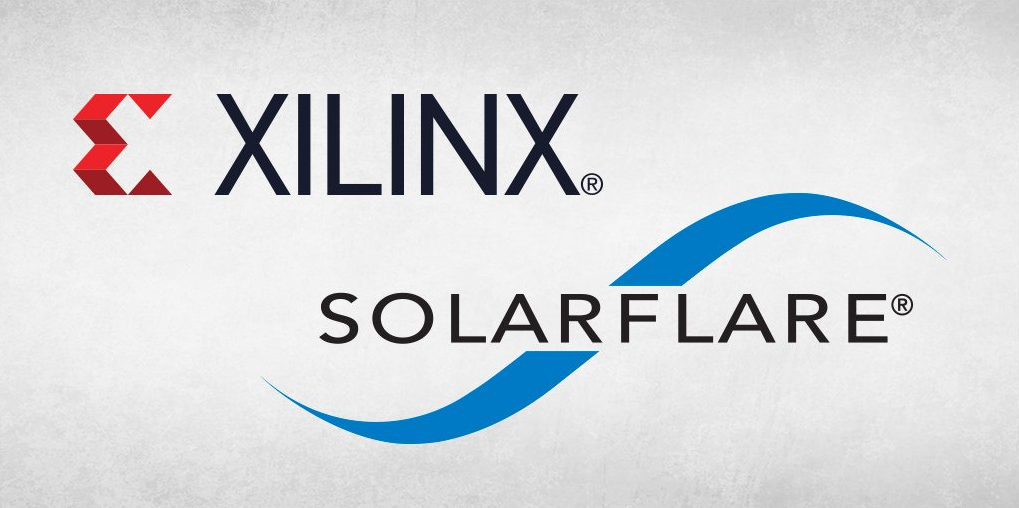 INFRA
INFRA
 INFRA
INFRA
 INFRA
INFRA
Specialist field-programmable gate array chipmaker Xilinx Inc. boosted its networking credentials today by acquiring Solarflare Communications Inc.
Solarflare uses FPGAs, which are computer chips that can be reprogrammed on the fly to perform specific computing tasks more efficiently, to build smart network interface cards that integrate networking, storage and compute.
SmartNICS, as they’re called, reduce latency as they eliminate the need to run these workloads on central processing units, helping to boost server performance and provide better connectivity. The company also makes special acceleration software for customers to take advantage of its SmartNICS.
Xilinx said the acquisition would help to accelerate its new “data center first” strategy announced last year that it hopes will help it transform itself from a mere chipmaker to more of a platform company such as Intel Corp. or Nvidia Corp.
Xilinx may not be as well-known as those rivals, but it’s a significant player in the chip industry nonetheless. The company built the first commercial FPGAs as far back as 1985, counting big names such as Microsoft Corp. and Huawei Technologies Co. Ltd. as its customers. Indeed, Microsoft reportedly uses Xilinx chips to power more than half of its Azure cloud servers.
The acquisition isn’t a surprise since Xilinx enjoys a close relationship with Solarflare. Xilinx was one of the main backers in Solarflare’s last funding round in 2018, and this year they showed off their first joint product: an FPGA-based SmartNIC that can process 100 million data packets per second.
“The Solarflare team has worked very closely with Xilinx on next-generation networking technology and business collaboration since Xilinx became a strategic investor,” said Russell Stern, chief executive officer at Solarflare.
Xilinx said the acquisition should close around six months from now, during its second quarter fiscal 2020. Financial terms of the deal were not disclosed.
“The acquisition makes sense,” said Karl Freund, senior analyst of HPC and Deep Learning at Moor Insights & Strategy. “Xilinx is focused on data center applications, and the interconnect capabilities offered by Solarflare, built on Xilinx’s technologies, enhances the scalability of FPGAs.”
The acquisition comes just weeks after Xilinx’s rival Nvidia Corp. announced plans to buy Mellanox Technologies Ltd. for $6.9 billion. Mellanox is similar to Solarflare in that it also makes specialized processors for data center networking systems. Xilinx was also said to be looking to buy Mellanox, though its reported offer of $5 billion fell some way short of what Nvidia ultimately paid.
Support our mission to keep content open and free by engaging with theCUBE community. Join theCUBE’s Alumni Trust Network, where technology leaders connect, share intelligence and create opportunities.
Founded by tech visionaries John Furrier and Dave Vellante, SiliconANGLE Media has built a dynamic ecosystem of industry-leading digital media brands that reach 15+ million elite tech professionals. Our new proprietary theCUBE AI Video Cloud is breaking ground in audience interaction, leveraging theCUBEai.com neural network to help technology companies make data-driven decisions and stay at the forefront of industry conversations.